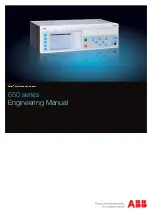
9
According to crash statistics,
CHILDREN ARE SAFER
WHEN PROPERLY RESTRAINED IN REAR VEHICLE SEATING
POSITIONS, RATHER THAN FRONT SEATING POSITIONS.
For a
vehicle with a front passenger air bag, refer to your vehicle owner’s
manual as well as these instructions for infant restraint installation.
NEVER LEAVE YOUR CHILD UNATTENDED.
NEVER LEAVE AN INFANT RESTRAINT AND BASE UNSECURED
IN YOUR VEHICLE.
An unsecured infant restraint or base can be
thrown around and may injure occupants in a sharp turn, sudden
stop or crash. Remove it or make sure that it is securely belted in
the vehicle. If not using
LATCH,
make sure unsecured
LATCH
connectors are properly stored in base.
REPLACE THE INFANT RESTRAINT AND BASE AFTER A
CRASH OF ANY KIND EVEN IF INFANT RESTRAINT WAS
UNOCCUPIED.
A crash can cause damage to the infant restraint that
you may not be able to see.
DO NOT MODIFY YOUR INFANT RESTRAINT AND BASE
or use
any accessories or parts supplied by other manufacturers.
NEVER USE INFANT RESTRAINT AND BASE IF IT HAS
DAMAGED OR MISSING PARTS.
DO NOT use a cut, frayed or
damaged infant restraint harness, vehicle seat belt or
LATCH
belt.
THE INFANT RESTRAINT CAN BECOME VERY HOT IF LEFT IN
THE SUN.
Always touch the surface of any metal or plastic parts
before putting your child in the infant restraint.
THIS INFANT RESTRAINT CONFORMS
to all applicable Federal
Motor Vehicle Safety Standards and is certified for use in motor
vehicles and aircraft.
















































